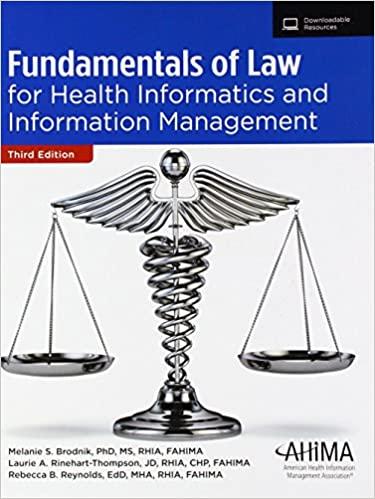Question
1. An antiques purchaser who did not speak English sued a dealer for breach of contract, alleging that he had agreed to sell her an
1.
An antiques purchaser who did not speak English sued a dealer for breach of contract, alleging that he had agreed to sell her an antique chair for $15,000 but had refused to accept her certified check when she came to pick up the chair. At the trial, the purchaser, through an interpreter, testified that she asked her brother to communicate to the dealer her offer to purchase the chair. She wishes to testify that her brother told her, "The dealer has agreed to sell you the chair for $15,000." The agreement was not reduced to writing and the brother died a few days after that conversation.
If the jurisdiction has a typical "Dead Man Act," what effect will the Act have upon the admissibility of the purchaser's conversation with her brother?
a. It will render the conversation inadmissible because the purchaser is an interested party.
b. None, because a civil action is involved.
c. None, because the dealer is not a protected party.
d. It will render the conversation inadmissible because a civil action is involved.
2. The key witness in the prosecution's case against the defendant is the only eyewitness to have seen the commission of the felony for which the defendant is being charged. The witness, a recent immigrant, has a total hearing impairment and is mute. In addition, the system of "signing" for the deaf is different in the witness's country of origin from the method used in the United States. The only person in the county conversant with the witness's signing method is a clerk in the county prosecutor's office. The clerk had assisted the police in their questioning of the witness prior to the defendant's arrest, and also when the witness identified the defendant in a lineup.
Should the court allow the witness to testify using the clerk as an interpreter?
a. No, unless the clerk discloses to the jury her employment and previous activities in this case.
b. Yes, because the clerk is qualified.
c. Yes, if the clerk takes an oath to make a true translation.
d. No, because as a result of her employment and previous activities, the clerk is inherently biased.
3. A plaintiff prevailed in a jury trial against a defendant for personal injuries resulting from an automobile accident. During jury deliberations, the jury disregarded the instructions given by the trial judge. One juror showed the others a newspaper account of the accident. Another juror expressed his dislike for the defendant. The jury also misunderstood the burden of persuasion. The defendant wants to call a juror to testify as to each of these facts in a post-verdict proceeding.
About which of these facts may a juror testify in a post-verdict proceeding?
a. During jury deliberations, one juror showed the other members of the jury a newspaper account of the accident.
b. During jury deliberations, one juror expressed a personal dislike for the defendant.
c. The jury disregarded the instructions given by the trial judge.
d. The jury misunderstood the burden of persuasion.
4. A plaintiff sued a defendant for fraud. After a verdict for the plaintiff, the defendant talked with a juror about the trial. The juror informed the defendant that, during the trial, (i) he had misunderstood the judge's instructions concerning the standard of proof in a fraud case, (ii) he was feeling ill and needed to get home quickly, (iii) he had relied on testimony that the judge had stricken and ordered the jury to disregard, and (iv) he had learned from a court clerk that the defendant had been accused of fraud in several recent lawsuits. Hoping to receive a new trial, the defendant wants the juror to testify as to these facts in a post-verdict hearing.
About which of these facts will the juror most likely be allowed to testify?
a. He had learned from a court clerk that the defendant had been accused of fraud in several recent lawsuits.
b. He had misunderstood the judge's instructions concerning the standard of proof in a fraud case.
c. He was feeling ill and needed to get home quickly.
d. He had relied on testimony that the judge had stricken and ordered the jury to disregard.
5.A six-year-old child was riding his bicycle when he observed an automobile accident. The plaintiff, the driver of one of the cars involved, brought suit against the other driver. At trial, the plaintiff called the child to testify about his observations of the accident.
If the defendant objects on the ground of competency, how should the trial judge rule?
a. Permit the testimony, if the child recalls the accident and appreciates his obligation to tell the truth.
b. Sustain the objection, unless the plaintiff produces evidence to overcome the presumption of incompetence.
c. Sustain the objection, because a six-year-old child is conclusively presumed to be incompetent.
d. Permit the testimony, if the court instructs the jury to consider it with great caution.
Step by Step Solution
There are 3 Steps involved in it
Step: 1

Get Instant Access to Expert-Tailored Solutions
See step-by-step solutions with expert insights and AI powered tools for academic success
Step: 2

Step: 3

Ace Your Homework with AI
Get the answers you need in no time with our AI-driven, step-by-step assistance
Get Started


